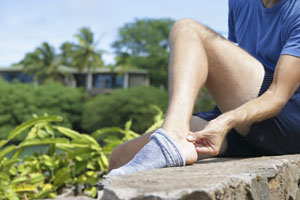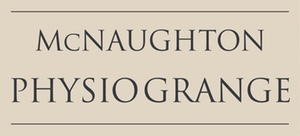Achilles Tendinopathy – a pain in the heel !
Those of you well versed in Greek mythology will know the story of Achilles. His mother Thetis attempted to protect him by dipping him in the river Styx so that his skin would become impervious to Trojan arrows. However, she forgot that by holding him by the heel during the dipping process his heel was unprotected and this later caused his downfall. Could your Achilles tendons cause you problems too?
A tendon is the band or cord of fibrous tissue which attaches muscle to bone. In the case of the Achilles, it is the single tendon connecting two calf muscles, Gastrocnemius and Soleus, to the Calcaneum or heel bone. Tendons transmit the forces generated by muscle to bone and are mechanically very strong. The Achilles has to be as it transmits the force generated by the calf muscle to our ankle to lift our body weight up against gravity every step we take.
What symptoms would indicate an Achilles problem?
- Pain is usually the main symptom and the tendon can be particularly sore for the first few steps of the day. This will ease off as the day goes on but more severe cases can be sore all day.
- The tendon may become swollen and on feeling the tendon, pain is usually worse 2 – 7 cm above the insertion into the heel bone. In chronic cases a tender thickened nodule can be present.
What can contribute to Achilles tendon injury?
- Causes can include:-
- Calf muscle tightness.
- Foot posture, particularly if you have a foot type where you tend to walk or run on the “outside” or lateral aspect of your heel, then your forefoot flattens quickly to meet the ground causing a “Whipping” of the Achilles. This extra movement irritates the tendon causing pain.
- Old shoes that are no longer able to maintain foot position or help with shock absorption can be factor in Achilles problems.
- Sudden increases in activity levels can strain the tendon.
How do I treat Achilles tendon pain?
- The use of ice is regarded by some researchers as the single most useful intervention in the management of the early acute phase of Achilles Tendinopathy. However, always be wary of complete Achilles tendon rupture. If your tendon pain started suddenly, feeling like you had been hit or shot in the heel, if you have a lot of swelling / bruising, if you cannot point your toes down and if you are finding walking very difficult, seek medical advice at your local A&E department. Complete rupture of the Achilles tendon needs either immobilisation or surgical repair.
If you think you need further advice see a Physiotherapist. We can assess your injury and help identify causes. Collagen repair and remodelling is stimulated by tendon loading so complete rest can be detrimental. An exercise programme to progressively load the tendon to simulate repair is currently thought of as the best form of treatment. Do seek advice sooner rather than later as chronic tendon problems are more difficult to resolve.

